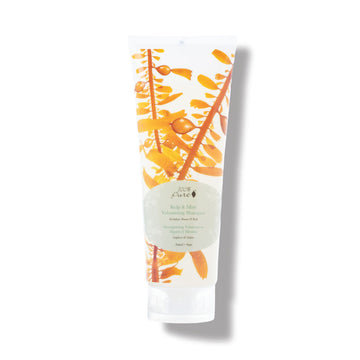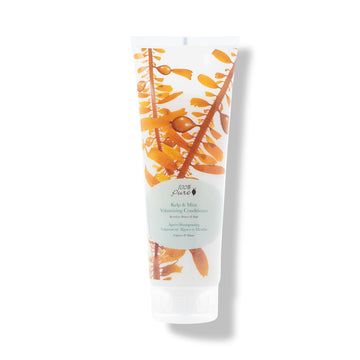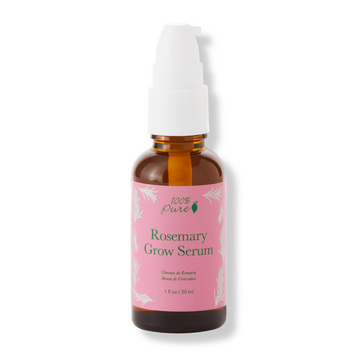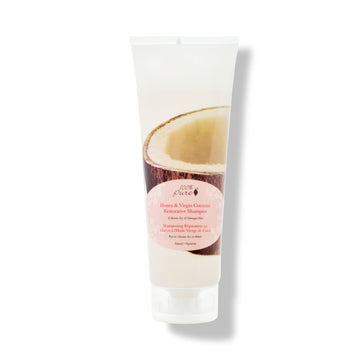Tips, Tricks, and Nutrition to Help Achieve Your Hair Goals
Posted on January 29, 2025 Written by: 100% PURE®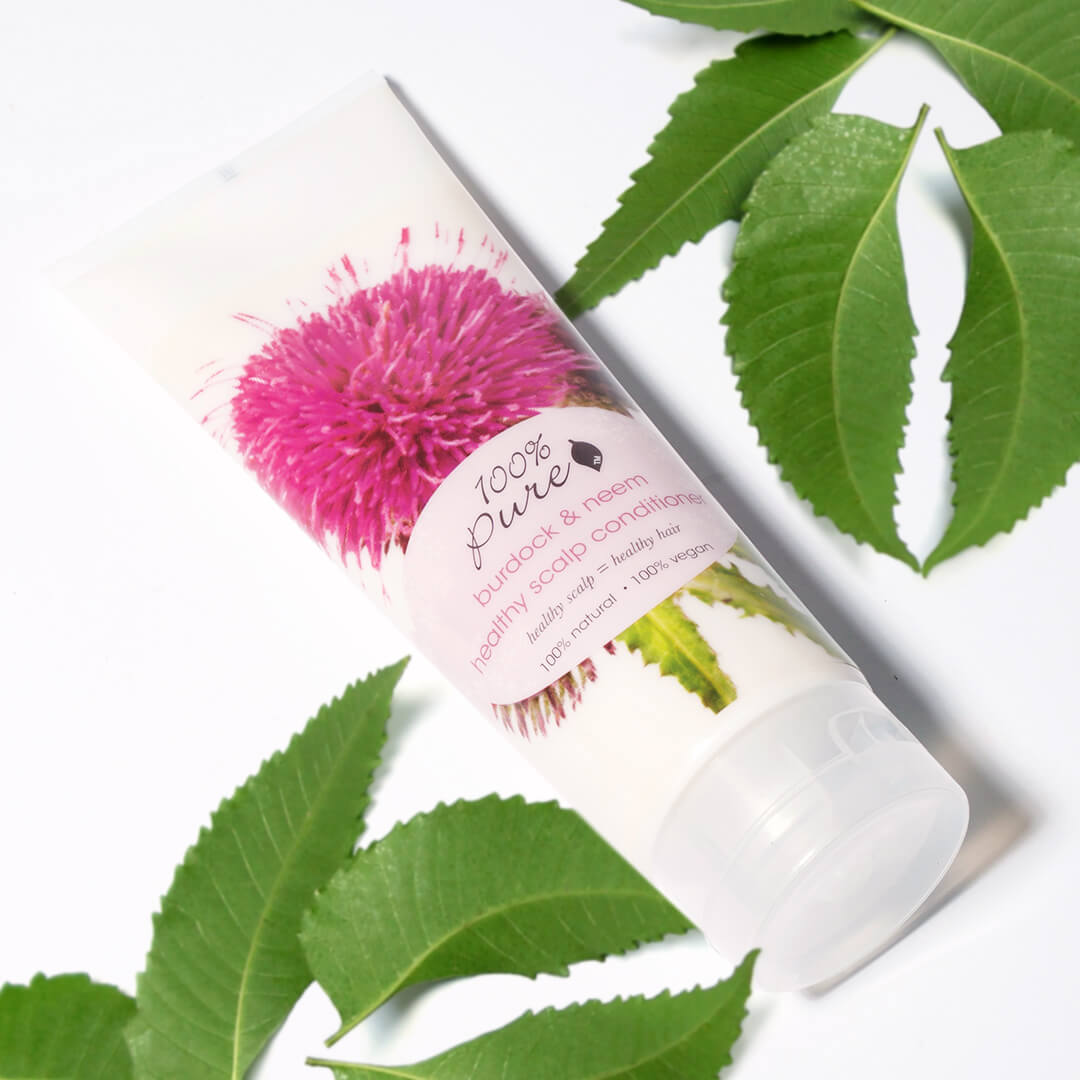
Along with skin and fingernails, hair is one of the first parts of our bodies to show signs of nutrient deficiency. Your body takes nutrients for ‘not essential’ body parts and concentrates them on the vital organs. Here are some important nutrients to include in your diet and lifestyle tips to help if your hair is brittle, breaking easily, thinning, or dull, or if you want to maintain a gorgeous, glorious full head of hair!
Protein deficiency
Hair (like fingernails) is made up primarily of keratin, a protein comprising a wide range of amino acids. When you either don’t eat enough or a wide range of different forms of protein, your body doesn’t have the ‘raw materials’ to make a long, strong strand of shiny, brilliant hair, which in turn leads to breakage of the hair strand, thinning of the follicle and not producing as many follicles.
Including a wide range of good quality organic protein sources like legumes and whole grains, sustainable seafood, nuts and seeds, pastured eggs, and meat will ensure your body has those raw amino acids to form keratin, meaning beautiful hair!
Mineral & vitamin deficiency
Vitamins and minerals play a big role in hair production and luster. Silica, iron, copper, biotin, vitamin E, selenium, and particularly zinc affect how well your hair grows. Zinc is an essential trace mineral our bodies use in protein synthesis, meaning the body needs zinc to knit those amino acids together to make keratin. Selenium also plays a role in building keratin out of the ‘building blocks’ of the amino.
Silica helps maintain connective tissues and blood flow to the hair follicle, encouraging good growth. Severe iron deficiency anemia can also result in hair loss, as the body takes iron (and the resulting oxygenated blood) away from hair follicles, causing them to stop functioning. The easiest and best way to ensure you’re providing enough of these nutrients for your scalp and hair is to eat a wide range of brightly colored fruits and vegetables, nuts, seeds, pastured organic eggs, and sustainable seafood.
Chemical overtreatment
It is well known that chemically overloading the hair is not good for it (or the rest of your body for that matter!) and over-bleaching and coloring, heat styling, and chemical processes like perming and straightening will weaken the bonds of the hair, making them dull and prone to breakage. In addition, regular use of conventional shampoos and conditioners (and other hair products) can strip hair of its natural oils and cause dandruff or the overproduction of sebum.
Cheap, industrial chemicals like sulfates and silicon can give the short-term illusion of clean hair, but the long-term effect on your strands is dull, depleted, weak hair. These harsh chemicals can also be irritating to more sensitive skin types. Inflamed, irritated scalps lead to unhappy hair follicles! Silicon is another culprit used in conventional conditioners that overcoats hair, creating a problematic, impenetrable surface. As a result, the natural oils in your hair can’t penetrate the hair shaft, causing dry and breakage-prone strands.
Give your locks some love and choose hair products with natural, plant-derived ingredients tailored to your hair type and condition. 100% PURE® 's Burdock & Neem Healthy Scalp Shampoo and Burdock & Neem Healthy Scalp Conditioner can help treat a dry, itchy scalp that has been stripped and depleted, while the Kelp & Mint Volumizing Shampoo can bring mega-strength and volume to limp, lank locks.
Thyroid function
Medical conditions can also cause hair loss, such as hypothyroidism. Low T3 (active thyroid hormone) can cause hair to thin and fall out. If you suspect you may have an underactive thyroid, consult with a qualified health practitioner and have your thyroid levels checked. There are a variety of symptoms of hypothyroidism that can vary from person to person.
Essential Fatty Acids
When we don’t get enough essential fatty acids in our diet, symptoms can be like hypothyroidism and so hair loss can result. If you have ruled out hypothyroidism (i.e. your thyroid hormone levels are normal) but you are experiencing similar symptoms like fatigue, dry skin, and hair loss, essential fatty acid deficiency could be the answer.
Stress
We are all familiar with the tearing-your-hair-out image of stress. Stress-related hair loss is a very real condition tied to vitamin and mineral deficiency as our bodies re-route those skin and hair-nourishing nutrients to meet our greater nutrient requirements to deal with stress. If you are going through mental, emotional, or physical stress, ensure you are receiving enough macro and micronutrients in your diet. This includes eating plenty of fresh fruit and vegetables as well as including good fats, complex carbohydrates like root vegetables and protein, and taking care of your digestive health by eating probiotics foods like full-fat plain yogurt or fermented foods like kombucha or sauerkraut or taking a probiotics supplement.
Supplemental B complex vitamins and vitamin C can also be beneficial during stressful times. Try to introduce a ‘sleep hygiene’ routine daily so you are gaining plenty of sleep, too. Develop good sleep strategies like having a consistent sleep schedule, establishing a bath routine, and managing caffeine intake. Sleeping is when our bodies do their very best repair work and can make a huge difference in regulating our inflammatory stress hormones and ability to cope with stress.
Please Note: This blog has been updated from its original version, written by Sophie Manolas. Sophie is a qualified Clinical Nutritionist, best-selling author of The Essential Edible Pharmacy, and a passionate permaculture principle farmer. She lives in Australia with her partner, 4 horses, 3 dogs, and a bunch of chickens and rabbits. Sophie is likely cooking something amazing right now as we speak. Follow her adventures on Instagram @theediblepharmacy.
Daily Habits for Stronger, Healthier Hair
Achieving healthy, strong hair is a goal for many individuals. It’s important to incorporate consistent daily habits to promote hair growth and the best natural products for achieving and maintaining luscious locks.
Gentle Hair Care Routine:
Commercial hair products often contain harsh chemicals that can strip the hair of its natural oils and cause damage. Look for natural hair growth products that are gentle and suitable for your hair type and specific concerns. Be sure to use lukewarm (not hot) for hair-washing to prevent stripping natural oils.
Try to refrain from using heat on your strands. Excessive heat from styling tools like flat irons and curling irons can cause damage to the hair shaft and weaken hair strands. Minimize heat styling or opt for heat-free styling techniques like air drying, braiding, or twist-outs to protect the hair and encourage natural growth. When using styling tools, always apply a heat protectant first.
Scalp Massage:
Regular scalp massages stimulate blood circulation, promoting hair growth. Use your fingertips to gently massage your scalp in circular motions for a few minutes daily or weekly. This technique helps nourish the hair follicles, reduce scalp tension, and enhance nutrient delivery to hair roots.
Balanced Nutrition Daily:
A nutritious diet is crucial in promoting natural hair growth. It’s important to include nutrient-dense meals with proteins, vitamins, and essential fatty acids, such as leafy greens, fruits, lean meats, and nuts, and drink plenty of water. Snacks rich in hair-friendly nutrients like nuts, seeds, and avocados are great between meals or added to salads. With your doctor's guidance, add hair-boosting supplements like biotin or omega-3 fatty acids.
The top 100% PURE Products for Strong, Healthy Hair
Conventional hair products often contain harsh chemicals that can strip the hair of its natural oils and cause damage. Switch to natural hair products free from sulfates, parabens, synthetic fragrances, and other hair-harming culprits. Look for gentle shampoos, moisturizing conditioners, and nourishing hair oils and treatments to maintain a healthy scalp and promote natural hair growth.
Kelp & Mint Volumizing Conditioner
This ultra-volumizing conditioner invigorates your scalp while hydrating, smoothing, and strengthening your strands.
Why Include: Ideal for adding body and strength to fine or limp hair.
Benefits: Infused with kelp and pro-vitamin B5 to boost volume and mint to invigorate the scalp while promoting healthy hair growth.
This invigorating serum is your solution to thicker, fuller hair. Formulated with organic rosemary, it provides a powerful boost to hair and strengthens follicles. Before washing hair, massage the scalp with serum, concentrating on areas that need the most re-growth. Leave on for a minimum of 15 minutes before shampooing. Use 3-7 times weekly for 3-6 months to see results.
Why Include: Perfect for targeting areas of thinning hair or promoting overall hair growth.
Benefits: Contains biotin and caffeine to stimulate follicles and encourage healthier, thicker hair growth.
Honey & Virgin Coconut Restorative Shampoo
This hydrating shampoo deeply moisturizes and repairs dry, damaged hair. Aloe, rose hydrosol, and honey replenish essential moisture and hydration for enhanced softness and shine.
Why Include: A deeply moisturizing shampoo for repairing damaged, brittle hair.
Benefits: Designed to detangle and nourish with pro-vitamin B5, while strengthening roots and strands with coconut oil, flax seed, and sea kelp. Packed with honey and coconut oil for hydration and nourishment.
Frequently Asked Questions About Healthy Hair
What are the best foods to eat for promoting hair growth?
No matter what kind of physical improvement you are striving for, a healthy diet will always be a prerequisite for it. Like other parts of your body, the hair also needs nutrition for optimal health and growth. A diet rich in proteins, vitamins, and minerals is essential for healthy hair growth. Foods like eggs, berries, nuts, fish, and leafy greens are excellent for hair health. They provide nutrients that bolster hair strength and growth.
How can I prevent hair damage caused by heat styling tools?
Protecting your hair involves minimizing heat styling, using a heat protectant spray, avoiding harsh chemical treatments, and using gentle, sulfate-free shampoos and conditioners. Regular hydration with natural oils or leave-in conditioners is also crucial. Opt for heat-free styling techniques like air drying, braiding, or twist-outs to protect the hair and encourage natural growth.
Are there specific ingredients I should look for in natural shampoos and conditioners?
Key herbal or plant-based natural ingredients that promote hair growth include biotin, keratin, and vitamin E. Biotin strengthens hair follicles, Keratin improves hair structure, and vitamin E nourishes the scalp. Other beneficial ingredients include aloe vera and argan oil, which repair dead skin cells on the scalp.
How often should I trim my hair to maintain its health and strength?
To maintain healthy hair, most experts recommend getting a trim every 6-8 weeks, although this can vary depending on your hair type and current hair health; those with very damaged or fine hair might need trims more frequently, while those with healthy hair may be able to go longer between trims.
Can stress and lack of sleep contribute to hair loss or thinning?
Stress and inadequate sleep can induce hair loss tied to vitamin and mineral deficiency as our bodies re-route those skin and hair-nourishing nutrients to meet our greater nutrient requirements to deal with stress or poor sleep. If you are going through mental, emotional, or physical stress, ensure you are receiving enough macro and micronutrients in your diet. Maintain a diet rich in proteins, vitamins, and minerals for healthy hair growth. Foods like eggs, berries, nuts, fish, and leafy greens are excellent for helping with hair loss and thinning.
- Tags: Body, Hair Care, January-2025
We carefully hand-select products based on strict purity standards, and only recommend products we feel meet this criteria. 100% PURE™ may earn a small commission for products purchased through affiliate links.
The information in this article is for educational use, and not intended to substitute professional medical advice, diagnosis, or treatment and should not be used as such.












